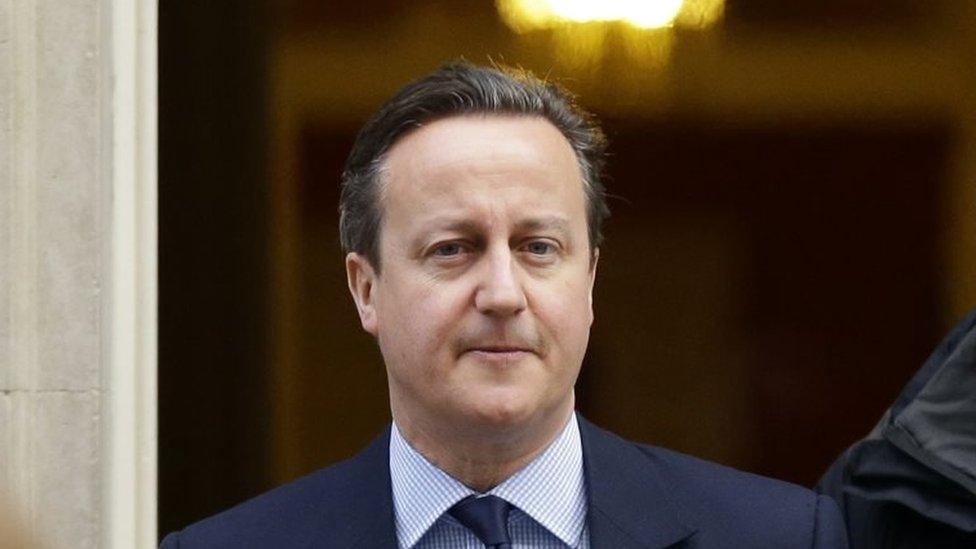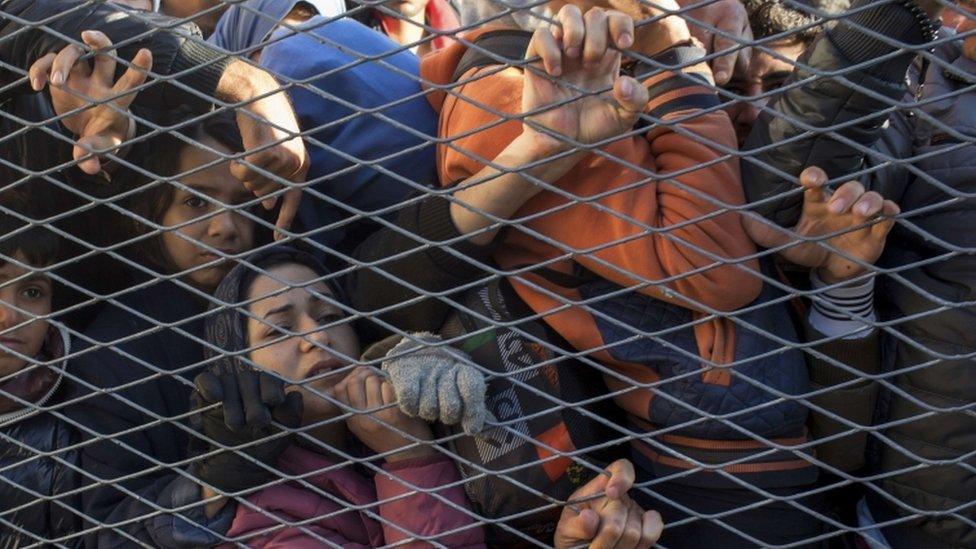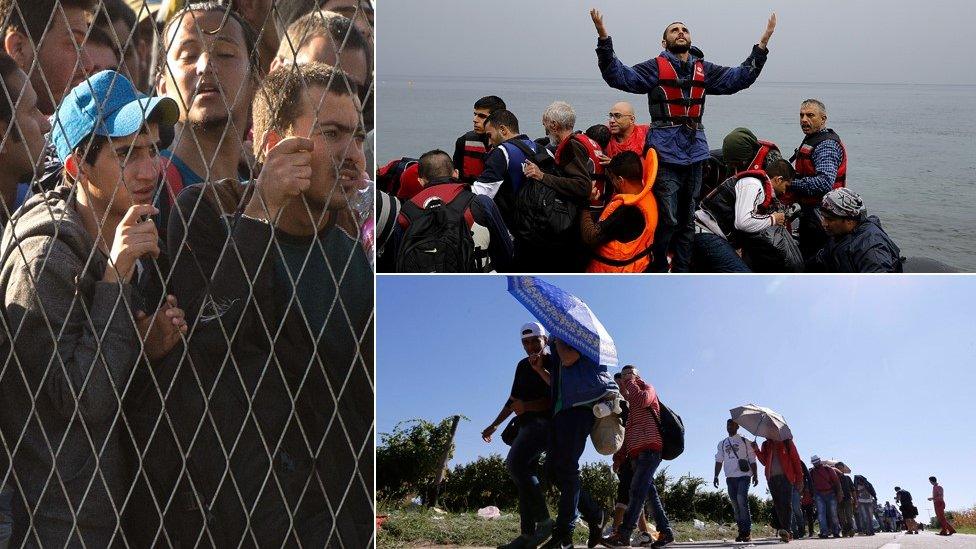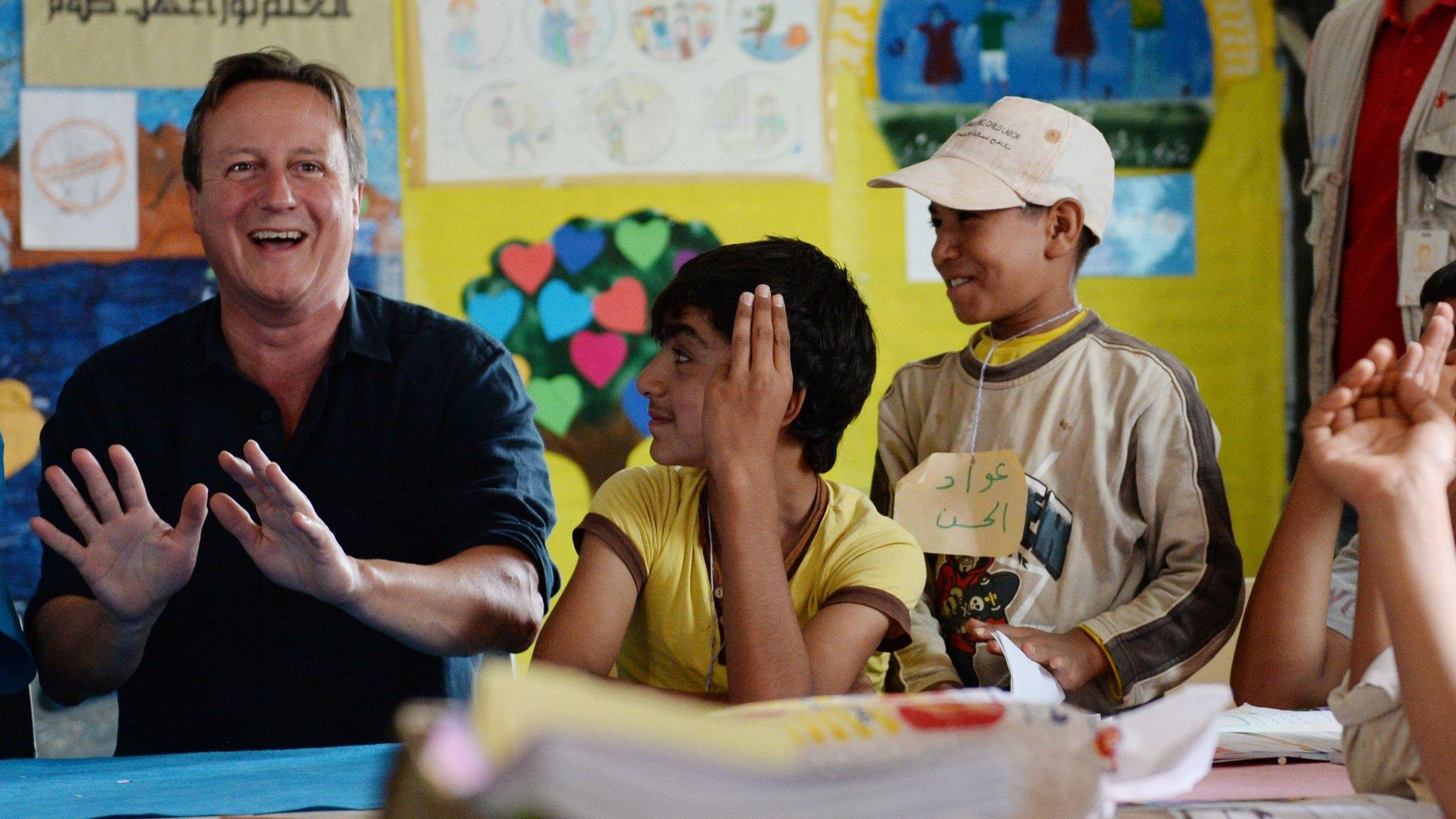Cameron faces refugee 'burden' battle as EU draws up new scheme
- Published

The UK is battling EU plans to share the "burden" of refugees more evenly amongst member states.
The EU wants to scrap the rule that means refugees must claim asylum in the first country they arrive in, and introduce a new dispersal scheme.
European Commission President Jean Claude Juncker says he wants a deal on refugees around the same time as one on David Cameron's renegotiation demands.
Foreign Secretary Philip Hammond said he was "very concerned" by the idea.
Mr Juncker said he was "convinced the EU Council in February will reach a fair deal for Britain", which Mr Cameron has said will pave the way for an in/out referendum later this year.
'Simply unacceptable'
But Mr Juncker added: "I am worried we won't have enough time to tackle there the refugee question in sufficient depth. I recommend to (European Council President) Donald Tusk that he holds a further summit.
"We can't have a success on the UK and not address the refugee quotas, that would be a mistake."
The European Commission wants to scrap what is known as the Dublin agreement, which dictates refugees must claim asylum in the "first country of entry".
Mr Juncker says he wants a "fairer" system that does not place the burden on "three or four countries" that "are dealing with the situation on their own," while "some countries aren't complying with their responsibilities".
"A very large number of refugees are targeting specific countries, refugees want to decide where they want to go, and that is simply unacceptable," he added.
Some EU states have brought in temporary border controls as migrants travelled north from Italy and Greece - and Brussels fears the passport-free Schengen area, which includes most EU nations but not Britain and Ireland, could collapse if a solution is not worked out soon.

Analysis by Political Correspondent Ross Hawkins

The UK could opt out of any new EU scheme to deal with refugees. So why does this matter in Westminster?
First, because if the Dublin agreement is scrapped Britain may not be able to return refugees to other EU nations.
That could mean more people settling in this country, although the numbers may be modest compared to overall migration.
Second, because the timing could be very awkward.
Imagine this: February, and David Cameron seals an EU deal which he says resets Britain's relationship, tipping control away from Europe.
March: the European Commission unveils a new plan to disperse refugees across the continent and asks the UK to take part.
However much some campaigners might try to talk about other issues, that could rapidly centre the referendum fight on the fate of refugees and levels of immigration.

Britain has been under pressure to take in more people as Europe struggles to deal with a huge influx of refugees. It has opted out of an EU quota system but pledged to resettle 20,000 Syrian refugees over the next five years.
The UK could opt out of any new migration quotas agreed by other EU nations - but potentially at the expense of losing the right to return refugees to other EU nations.
'Protecting refugees'
International Development Secretary Justine Greening said the UK would be "strongly against" any attempt to scrap the "first country of entry" rule and Britain would retain its opt-out on whatever was decided.
And Mr Hammond said the "noises" coming out of Brussels were worrying.
"We regard the Dublin Agreement as an important part of the architecture within the EU.
"And if it's going to be changed, it will need to be changed in a way that makes sense and that protects our interests."
Alanna Thomas, senior researcher at Migration Watch UK, said: "The Dublin regulation was undermined this summer when Angela Merkel committed to processing all asylum applications from Syrian nationals who entered Germany."
But the Refugee Council said the Dublin system "has never been fit for purpose and is inherently unfair on Europe's border nations".
Refugee Council policy manager Judith Dennis said: "At the moment, under the Dublin regulation, asylum seekers are shuttled around the continent like unwanted luggage, and at great expense, as states in northern Europe try to shirk their responsibility towards protecting refugees.
"It's absolutely clear that we need to see a more equitable system for sharing responsibility across Europe for protecting refugees and enabling them to reunite with their family members here.
"Protecting refugees isn't just a job for the Greeks and the Italians; they simply don't have the ability to deliver a continent's worth of compassion alone. It's vital that all countries across Europe, including Britain, step forward and offer to help the desperate refugees arriving in Europe find safety."
- Published20 January 2016
- Published23 September 2015

- Published14 September 2015
